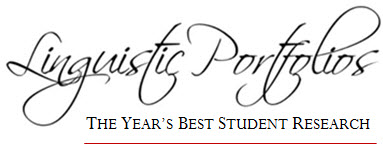
Abstract
The production of comprehensible output is an integral component of learning a second language (Swain, 1985). To facilitate the development of communicative competence, teachers often provide oral corrective feedback to their students during interaction. In theory, this enables second language (L2) learners to recognize the manner in which their output either aligns or deviates from target norms (Long, 1996; Gass, 2008). Previous research on interactional feedback has largely focused on the comparative efficacy of various types of interactional feedback, namely prompts and recasts. The aim of this study, which is an expanded replication of a study conducted by Mackey, Gass and McDonough (2000), was to investigate learner perceptions of interactional feedback and its intended targets. Eight ESL students participated in a dyadic task with a teacher, during which they were provided feedback in response to a variety of errors. Subsequently, the students and teacher both completed stimulated recall interviews as a means of introspecting about their thoughts during each of the feedback episodes. The results revealed that although the interactional feedback was generally salient to learners, the errors which triggered that feedback were not. More specifically, the learners were generally accurate in their perceptions of lexical feedback, but were typically unable to identify the target of morphosyntactic and phonological feedback. Instead, the majority of the feedback was misinterpreted as being about semantics. Essentially, this suggests that there is a disconnect between teachers and students regarding oral corrective feedback, as learners may be more focused on meaning, rather than form.
Creative Commons License

This work is licensed under a Creative Commons Attribution-NonCommercial-No Derivative Works 4.0 International License.
Faculty Supervisor
Dr. John Madden
Recommended Citation
Lorincz, Kristen
(2014)
"L2 Learner Perceptions of Interactional Feedback,"
Linguistic Portfolios: Vol. 3, Article 10.
Available at:
https://repository.stcloudstate.edu/stcloud_ling/vol3/iss1/10



Author Bio
Kristen Lorincz is a recent graduate of the MA TESL & Applied Linguistics Program at SCSU and is currently pursuing a K-12 license in ESL. She earned a BA in history from the College of St. Scholastica in Duluth, MN. In the future, she plans to teach in both the United States and abroad for several years, and then pursue a doctoral degree in a related field.